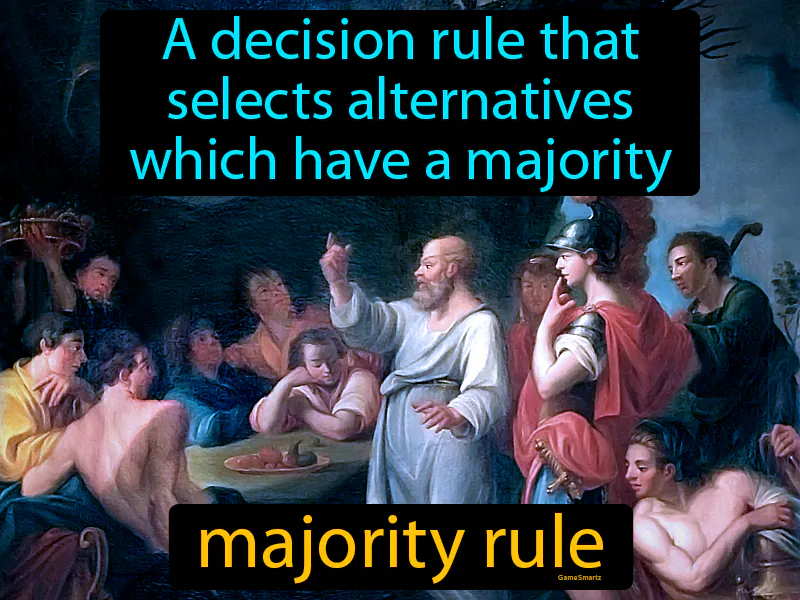Majority Rule
Majority Rule: Easy to understand
In ancient Greece, particularly in Athens, majority rule was essential in the development of democracy, where citizens gathered to make decisions about laws and policies. This concept responded to the need for a fair and organized way to make decisions in a community where not everyone agreed, ensuring that the choice with the most support was implemented. Majority rule was important because it allowed citizens to have a voice and participate in the governance of their city-state, promoting a sense of shared responsibility and civic duty. Today, majority rule continues to be important in democratic societies, as it ensures that decisions reflect the preferences of most people, such as when voting for leaders or deciding on community projects. For example, in a school election, majority rule might determine which student becomes class president, allowing students to feel heard and represented by someone they chose.

Practice Version

Majority Rule: A decision rule that selects alternatives which have a majority. Majority rule. In history, majority rule is a democratic method where decisions or elections are based on what more than half of the people want.